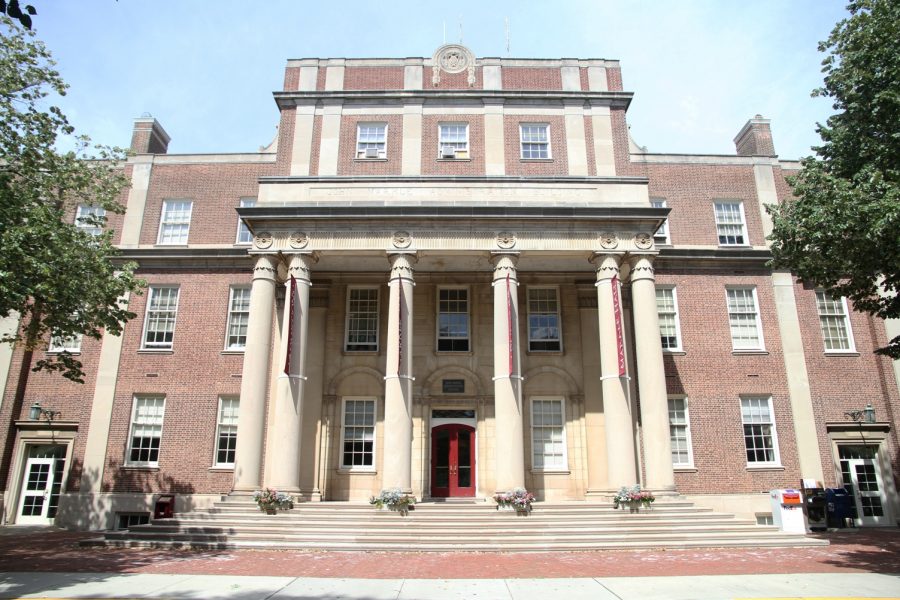The college reaffirmed its commitment to including LGBTQ communities after President Donald Trump withdrew federal protection for transgender students, even though Lafayette policies remain unaffected.
President Alison Byerly wrote in an email to campus on Tuesday that the college would continue to increase inclusivity through residence life, athletics and gender and sexuality programs.
This reaffirmation came five days after the Trump Administration revoked guidelines put in place by the Obama administration for transgender students in public schools that allowed them to use the bathroom of their choice. The Washington Post published the letter online which the administration sent to public schools.
Since Lafayette is a private institution, according to Director of Residence Life Grace Reynolds, the executive decision from the federal government has no effect on the college’s policies.
“Our policies existed prior to the executive order President Obama signed, [and] they still exist now,” Reynolds said. “They’re not related to whether or not there is an executive order.”
Reynolds, however, was not aware whether or not the college’s federal funding could potentially be affected in the future.
Vice President of Campus Life Annette Diorio does not anticipate any direct influence from future decisions made by the current presidential administration and says that no concerns have been made to campus life from students since the announcement last Wednesday night.
“We’re just trying to take each piece of guidance as it comes,” Diorio said. “Much of the guidance that comes doesn’t affect us because we’re a private institution but of course we look to see ‘what does this mean’ and we evaluate each piece as it comes out.”
President Alison Byerly also said that the college’s gender inclusive facilities would not be affected, and that students who identify as transgender have the right to use the bathroom of their choice.
“That was the decision we made that was quite independent of the federal government guidelines,” Byerly said.
There are several dorms on campus that provide gender inclusive bathrooms and living accommodations such as Keefe Hall and Grossman House.
According to Byerly, the college also plans on including gender-inclusive bathrooms in the new dorm constructions and other buildings on campus that undergo renovation.
“I think we committed to doing what we could in the course of regular renovation efforts but I don’t think we set a timeline for going into buildings that weren’t otherwise needing renovation and with that as the only goal,” she said.
Since the fall of 2010, the school has been offering gender inclusive housing as an option. According to Reynolds, the school considers gender inclusive housing as housing that is not specific to a particular gender, and is open to everyone and however one defines oneself.
Conversations have also been underway before the Trump Administration’s decision to provide these gender inclusive options for incoming freshmen as well.
“We’ve been thinking about how we may offer gender inclusive housing for incoming first year students which isn’t a program we’ve had up to now, and we are looking to introduce that for next year,” Reynolds said.
Plans for this are still underway, but as time goes on the college plans to continue its commitment to inclusivity in student life.
“I think we’re deeply committed to our core institutional values and diversity is one of those,” Diorio said.
Byerly agrees with Diorio and feels many areas on campus are broadening their involvement with such issues, such as athletics and their ‘If you can play, you can play’ campaign.
“I think things like that should be recognized so that people understand it’s not simply the central administration that cares about these issues, but that lots of offices across campus are looking for ways to have an impact on their own practices,” she said.





















































































































